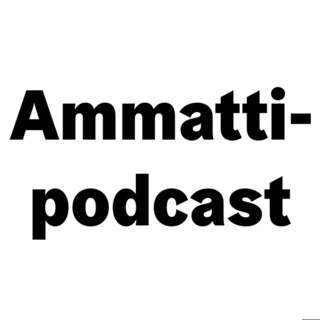
137 – Matt Mitchell on Rent-Seeking and Public Choice
Matt Mitchell is the director and senior research fellow at the Equity Initiative at the Mercatus Center. He joins the show today to talk about rent seeking and how it affects long term economic growth and prosperity. David and Matt also discuss regulatory capture, the rise of patent trolls, and the economics of public choice theory. Transcript for the episode: https://www.mercatus.org/bridge/podcasts/12172018/macroeconomics-rent-seeking Matt's Twitter: @MattMitchell80 Matt's Mercatus profile: https://www.mercatus.org/matthew-mitchell Related Links: *Why Nations Fail: The Origins of Power, Prosperity, and Poverty* by Daron Acemoglu and James Robinson https://scholar.harvard.edu/jrobinson/publications/why-nations-fail-origins-power-prosperity-and-poverty *The Political Economy of the Rent-Seeking Society* by Anne Krueger https://www.jstor.org/stable/1808883?seq=1#page_scan_tab_contents *Entrepreneurship: Production, Unproductive, and Destructive* by William Baumol https://www.jstor.org/stable/2937617 *Uncontestable Favoritism* by Matt Mitchell https://papers.ssrn.com/sol3/papers.cfm?abstract_id=3210953 *40 Years of Research on Rent Seeking* by Roger Congleton, Arye Hillman, and Kai Konrad https://www.springer.com/us/book/9783540791881 David's blog: macromarketmusings.blogspot.com David's Twitter: @DavidBeckworth
17 Joulu 201856min

136 – Josh Galper on LIBOR, Overnight Lending, and the Lehman Brothers Collapse
Josh Galper is the managing principal of Finadium, an independent consultancy in capital markets with unique expertise in securities, finance, collateral, and derivatives. He joins the show today to talk about money markets, overnight interest rates, and some of the big issues in this area. David and Josh also discuss the Lehman Brothers collapse, the "Narrow Bank," and what we should know about key interest rates; namely the repo rate, LIBOR, interest on excess reserves rate, and SOFR. Transcript for the episode: https://www.mercatus.org/bridge/podcasts/12072018/plumbing-monetary-policy Josh's Twitter: @Finadium Josh's Finadium profile: https://finadium.com/josh-galper-mba/ Related Links: Finadium's homepage: http://finadium.com Finadium's magazine: http://securitiesfinancemonitor.com *Second Report of the Alternative Reference Rates Committee* by the New York Fed https://www.newyorkfed.org/medialibrary/Microsites/arrc/files/2018/ARRC-Second-report *The SOFR Transition: Benchmarks, Futures, and P&L* by Finadium https://finadium.com/finadium-report-desc/sofr-transition-benchmarks-futures-profit-loss/ David's blog: macromarketmusings.blogspot.com David's Twitter: @DavidBeckworth
10 Joulu 201850min

135 – Victoria Guida on Financial Regulation, Jay Powell, and Recent Fed Appointments
Victoria Guida is a reporter for Politico where she covers monetary policy and financial regulation, including extensive coverage of the Federal Reserve, the FDIC, the Treasury Department, and Congress. She joins the show today to talk about some of the big developments in monetary policy and financial regulation over the past few years and what kind of policy changes may be on the horizon. David and Victoria also discuss the Financial CHOICE Act, the accomplishments and failures of the current lame duck Congress, and what to expect from the new appointees at the Fed. Transcript for the episode: https://www.mercatus.org/bridge/podcasts/12032018/victoria-guida-politics-monetary-policy Victoria's Twitter: @vtg2 Victoria's Politico profile: https://www.politico.com/staff/victoria-guida Related Links: *Big Banks, Feeling Unloved in Trump's Washington, Shake Up Lobbying* by Zachary Warmbrodt https://www.politico.com/story/2018/07/09/banks-lobbying-donald-trump-669706 *A Bank's Activities, Not Its Assets, Should Decide Regulatory Status* by Thomas Hoenig https://www.americanbanker.com/opinion/a-banks-activities-not-its-assets-should-decide-regulatory-status David's blog: macromarketmusings.blogspot.com David's Twitter: @DavidBeckworth
3 Joulu 201859min

134 – Neil Irwin on the Invisible Recession, Monetary Regimes, and the Current Issues Facing the Fed
Neil Irwin is a senior economics correspondent for the New York Times and was formerly a columnist at the Washington Post. He is the author of the book, *The Alchemist: Three Central Bankers and a World on Fire*, and he joins the show today to talk about his work as an economics correspondent. David and Neil also discuss the invisible recession of 2016, how monopsony power affects labor market wage setting, and the political fallout from the Great Recession. Transcript for the episode: https://www.mercatus.org/bridge/podcasts/11262018/economic-journalism-recession-economics-and-international-monetary-policies Neil's Twitter: @Neil_Irwin Neil's New York Times profile: https://www.nytimes.com/by/neil-irwin Related Links: *The Alchemists: Three Central Bankers and a World on Fire* by Neil Irwin https://www.amazon.com/Alchemists-Three-Central-Bankers-World/dp/0143124994 *The Policymakers Saved the Financial System. And America Never Forgave Them* by Neil Irwin https://www.nytimes.com/2018/09/12/upshot/financial-crisis-recession-recovery.html *The Most Important Least Noticed Economic Event of the Decade* by Neil Irwin https://www.nytimes.com/2018/09/29/upshot/mini-recession-2016-little-known-big-impact.html *Are Superstar Firms and Amazon Effects Reshaping the Economy?* by Neil Irwin https://www.nytimes.com/2018/08/25/upshot/big-corporations-influence-economy-central-bank.html *Exchange Arrangements Entering the 21st Century: Which Anchor Will Hold?* https://www.nber.org/papers/w23134.pdf *What Recovery? The Case for Continued Expansionary Policy at the Fed* by J.W. Mason http://rooseveltinstitute.org/what-recovery/ David's blog: macromarketmusings.blogspot.com David's Twitter: @DavidBeckworth
26 Marras 201856min

133 – Adam Ozimek on Population Growth, Declining Business Dynamism and Fed Policy
Adam Ozimek is a senior economist at Moody's Analytics where he covers U.S. labor markets and demographics while actively blogging and tweeting about a wide range economic issues. He joins the show today to discuss mistakes in Fed policy and demographics. David and Adam also discuss the role demand played in the Great Recession, the link between population growth and inflation, and why the economy is experiencing weak productivity growth. Transcript for the episode: https://www.mercatus.org/bridge/podcasts/11192018/adam-ozimek-inflation-migration-and-productivity Adam's Twitter: @ModeledBehavior Adam's blog: https://www.economy.com/dismal/analysis/datapoints Adam's website: https://www.adamozimek.com Related Links: If you would like access to *The Fed's Mistake*, you can email Adam at Adam.Ozimek@moodys.com to request the paper. *Population Growth and Inflation* by Adam Ozimek https://www.economy.com/getlocal?q=a7c139c0-2b8c-4abf-9b65-bd8b11392939&app=eccafile *Declining Business Dynamism in the United States: A Look at States and Metros* by Ian Hathaway and Robert Litan https://www.brookings.edu/wp-content/uploads/2016/06/declining_business_dynamism_hathaway_litan.pdf *The role of Entrepreneurship in US Job Creation and Economic Dynamism* by Ryan Decker et. al http://econweb.umd.edu/~haltiwan/JEP_DHJM.pdf *The Migration Accelerator: Labor Mobility, Housing, and Aggregate Demand* by Greg Howard http://economics.mit.edu/files/12236 *Aging and the Productivity Puzzle* by Mark Zandi, Adam Ozimek, and Dante DeAntonio https://www.economy.com/dismal/analysis/commentary/300374/Aging-and-the-Productivity-Puzzle/ David's blog: macromarketmusings.blogspot.com David's Twitter: @DavidBeckworth
19 Marras 201859min

132 – Scott Sumner on the Lessons Learned for Monetary Policy, Ten Years Later after the Crisis
This week, Scott Sumner joins David Beckworth at the University of Texas at Austin for the Financial Crisis Symposium: "Ten Years Later: What Does the Data Say?" hosted by the Center for Enterprise and Policy Analytics at the McCombs School of Business. In this special live episode, Scott offers his thoughts on what the data tells us about the 2008 Financial Crisis from a monetary policy perspective. David and Scott also discuss using markets to guide monetary policy, why the Fed should conduct retrospective analyses, why we may want to replicate Australian monetary policy, and more. Transcript to this week's episode Scott's Mercatus profile Scott's blog Related Links: *Pause Interest-Rate Hikes to Help the Labor Force Grow* by Neel Kashkari David's blog David's Twitter: @DavidBeckworth Audio recording provided by the LAITS Audio Development Studio at the University of Texas at Austin
12 Marras 20181h 8min

131 – Mike Derby on Recent Economic Trends, Normalizing Monetary Policy and More
Mike Derby is a reporter for the Wall Street Journal who covers the Federal Reserve. He joins the show today to talk about his coverage of recent developments in the economy and in Fed policy. David and Mike also discuss the future of the Fed's operating framework, what an inversion of the Treasury yield curve portends, and the normalization of monetary policy after the 2008 Financial Crisis. Mike's Twitter: @michaelsderby Mike's Wall Street Journal archive: http://www.wsj.com/news/author/8347 Related Links: * Fed's Evans: U.S. Economy 'Firing on All Cylinders'* by Michael Derby https://www.wsj.com/articles/feds-evans-u-s-economy-firing-on-all-cylinders-1536930039 *Derby's Take: Watch Out, There's a Fedspeak Storm Coming* by Michael Derby https://www.wsj.com/articles/derbys-take-watch-out-theres-a-fedspeak-storm-coming-1538386200 *Derby's Take: Fed Rate-Range Settings Could See More Tweaks* by Michael Derby https://www.wsj.com/articles/derbys-take-fed-rate-range-settings-could-see-more-tweaks-1538127000 *Bank Sues New York Fed Over Lack of Account* by Michael Derby https://www.wsj.com/articles/bank-sues-new-york-fed-over-lack-of-account-1536185523 Transcript for the episode: https://www.mercatus.org/bridge/commentary/michael-derby-goes-behind-scenes-recent-fed-news David's blog: macromarketmusings.blogspot.com David's Twitter: @DavidBeckworth
5 Marras 201857min

130 – Don Boudreaux on Free Trade, Protectionism, and the China Shock
Don Boudreaux is a professor of economics at George Mason University as well as the co-director of the Program on the American Economy and Globalization at the Mercatus Center. He joins the show today to talk about the future of trade and globalization. David and Don also discuss the history of protectionism in the US, President Trump's trade policies, and why the China Shock thesis may signal bad economics. Don's blog: https://cafehayek.com/ Don's Mercatus Profile: https://www.mercatus.org/donald-j-boudreaux Related Links: *Clashing over Commerce: A History of U.S. Trade Policy* by Doug Irwin https://www.press.uchicago.edu/ucp/books/book/chicago/C/bo24475328.html *Tariffs, Immigration, and Economic Insulation: A New View of the U.S. Post-Civil War Era*by Cecil Bohanon and Norman Van Cott https://www.jstor.org/stable/24562083?seq=1#page_scan_tab_contents *The China Shock: Learning from Labor Market Adjustment to Large Changes in Trade* by David Autor, David Dorn, and Gordon Hanson https://www.nber.org/papers/w21906 David's blog: macromarketmusings.blogspot.com David's Twitter: @DavidBeckworth
29 Loka 201857min






















